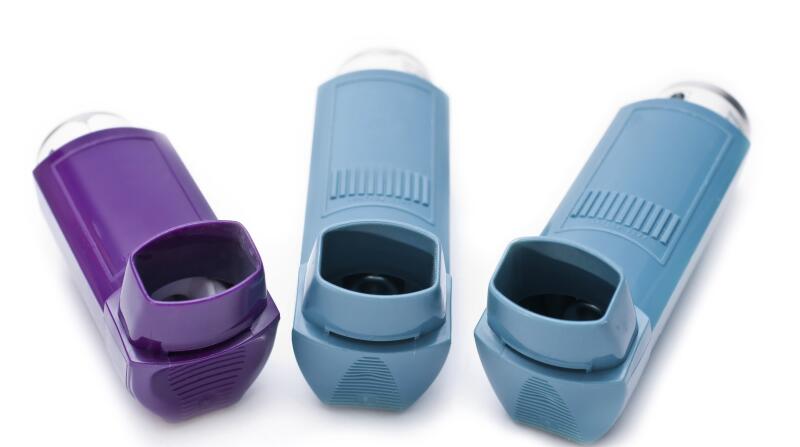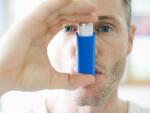PHYSICIAN VOICES
4 Signs Your Asthma Is Severe
-
 Is your asthma severe?If you have asthma, the airways bringing air in and out of your lungs become tight, restricting the flow of air. This translates into symptoms like shortness of breath and wheezing. Most people with asthma can control it successfully with medications and lifestyle changes. However, some people have severe asthma, in which they experience symptoms frequently despite taking their medication as prescribed. As a pulmonologist, I look for certain signs that my patients’ asthma is severe. If you’re experiencing any of the following, reach out to your pulmonologist to take next steps.
Is your asthma severe?If you have asthma, the airways bringing air in and out of your lungs become tight, restricting the flow of air. This translates into symptoms like shortness of breath and wheezing. Most people with asthma can control it successfully with medications and lifestyle changes. However, some people have severe asthma, in which they experience symptoms frequently despite taking their medication as prescribed. As a pulmonologist, I look for certain signs that my patients’ asthma is severe. If you’re experiencing any of the following, reach out to your pulmonologist to take next steps. -
 1. You end up in the hospital after asthma flares.Before they find the right treatment, people with severe asthma tend to have frequent flares, and often may end up needing to see their doctor or go to the hospital as a result. If a patient tells me they’ve been to the emergency room or were admitted to the hospital for an asthma flare, that’s indicative of severe asthma. And if they’ve been admitted to the intensive care unit of the hospital and needed a breathing machine to help them breathe, that’s a clear sign to me that their asthma is severe.
1. You end up in the hospital after asthma flares.Before they find the right treatment, people with severe asthma tend to have frequent flares, and often may end up needing to see their doctor or go to the hospital as a result. If a patient tells me they’ve been to the emergency room or were admitted to the hospital for an asthma flare, that’s indicative of severe asthma. And if they’ve been admitted to the intensive care unit of the hospital and needed a breathing machine to help them breathe, that’s a clear sign to me that their asthma is severe. -
-
 2. You often have asthma symptoms at night.Having asthma symptoms at night is one of the barometers we as pulmonologists use to determine how well your asthma is managed. Experiencing shortness of breath and wheezing at night is fairly typical of asthma that’s not well controlled. If you frequently wake up in the middle of the night to use your inhaler, that could mean you have severe asthma.
2. You often have asthma symptoms at night.Having asthma symptoms at night is one of the barometers we as pulmonologists use to determine how well your asthma is managed. Experiencing shortness of breath and wheezing at night is fairly typical of asthma that’s not well controlled. If you frequently wake up in the middle of the night to use your inhaler, that could mean you have severe asthma. -
 3. You’re using your rescue inhaler too often.The first step after someone is diagnosed with asthma is to put them on what’s called a rescue inhaler. Many patients will only need to use their rescue inhaler every once in a while to effectively control symptoms. However, if you’re using your rescue inhaler at least once every week, we’ll need to step up your treatments, as your asthma might be more severe.
3. You’re using your rescue inhaler too often.The first step after someone is diagnosed with asthma is to put them on what’s called a rescue inhaler. Many patients will only need to use their rescue inhaler every once in a while to effectively control symptoms. However, if you’re using your rescue inhaler at least once every week, we’ll need to step up your treatments, as your asthma might be more severe. -
 4. Stepping up treatments isn’t working.If more therapy is needed beyond your rescue inhaler, I’ll prescribe a steroid inhaler that reduces inflammation in your airways. Many of my patients with milder asthma get their asthma under control within a few weeks of starting the inhaled steroid. However, a smaller percentage of people can really struggle to figure out the right combination of therapies. For these patients, I’ll prescribe long-acting inhalers that open the airways, allergy medication, steroid pills, biologics, and other options. However, if your asthma is severe, symptoms may persist despite all these treatments. Fortunately, new medications are available that address inflammation caused by white blood cells called eosinophils, and many of my patients with severe asthma finally get their symptoms under control using these therapies
4. Stepping up treatments isn’t working.If more therapy is needed beyond your rescue inhaler, I’ll prescribe a steroid inhaler that reduces inflammation in your airways. Many of my patients with milder asthma get their asthma under control within a few weeks of starting the inhaled steroid. However, a smaller percentage of people can really struggle to figure out the right combination of therapies. For these patients, I’ll prescribe long-acting inhalers that open the airways, allergy medication, steroid pills, biologics, and other options. However, if your asthma is severe, symptoms may persist despite all these treatments. Fortunately, new medications are available that address inflammation caused by white blood cells called eosinophils, and many of my patients with severe asthma finally get their symptoms under control using these therapies
Your Opinion Matters!
In order to improve our content, we want to hear from you. Please take this short anonymous survey to let us know how we’re doing.
Take the survey!
Severe Asthma | Severe Asthma Symptoms















